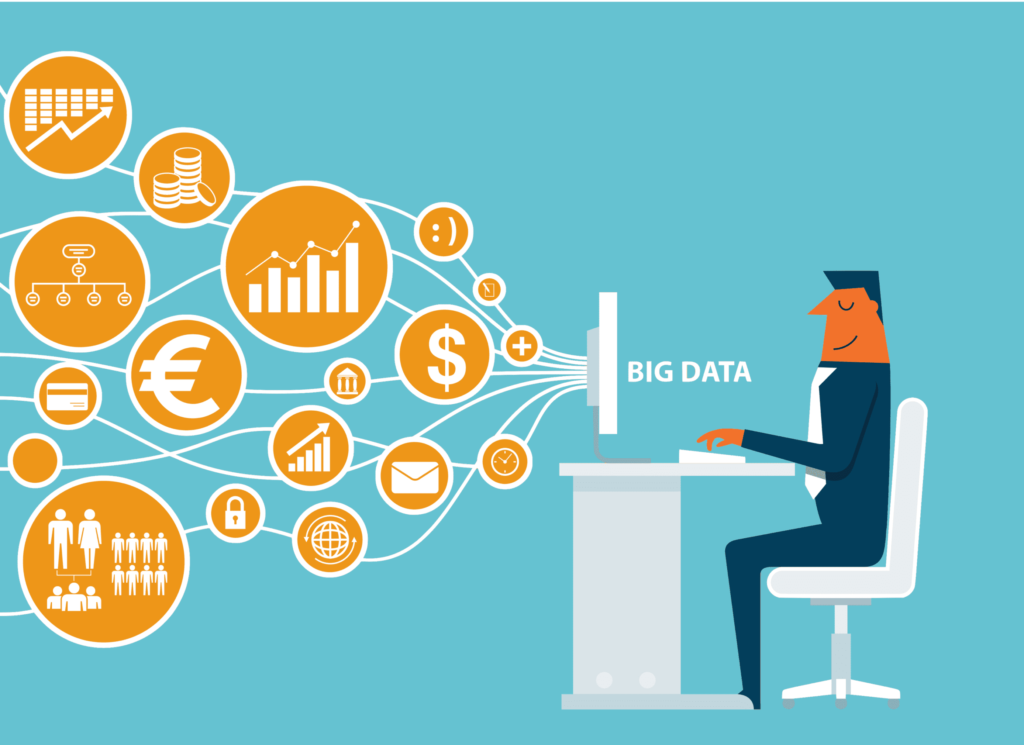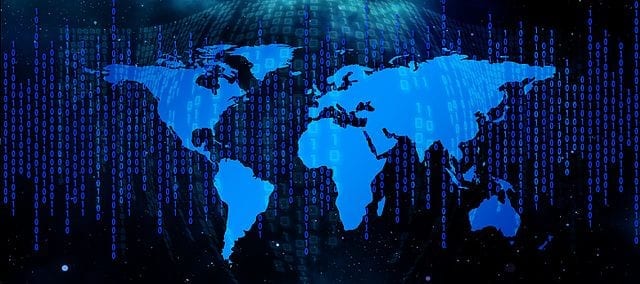
The term ‘Big Data’ is today being used to explain our potential to make complete sense of the huge volumes of data increasing day by day in the world. With big data, we can now analyze and collect data in ways that weren't possible even a few years ago and whether you call it big data, business intelligence, data analysis or analytics, it doesn't really matter. With its advent, the world is witnessing a major shakeup in the analysis and processing of data.
The concept gained momentum and popularity back in the 2000s, and since then it is continuously shaping businesses. We have various definitions of big data and different ways of how people define it. Big data is a huge term that covers a lot of things. It is an umbrella term, but few describe it as a world of possibilities for ameliorating people’s lives. Big data technologies and practices are moving quickly. More and more companies are now realizing the power of data and the fact is that most of the ventures are adopting big data into practice. But many of them, although put a lot of effort in collecting and analyzing data, are not getting the desired results out of it. There is still a lack of awareness or the right strategy to it.
While 2016 was a great year to see some big and exciting changes in big data and taking into account the pace at which it's evolving, we have a lot to expect in the coming years. Here are the top big data trends that are expected in 2017.
1. Growth of Analytics

With big data gaining popularity in almost all fields, we see the rise of more advanced, more precise and faster data analytics in fields such as health, IT, finance, marketing and more. Currently, almost all IT firms and businesses have started using data analytics to fetch the right metrics for the amelioration of their businesses. Line managers and executives want analytics that give them instant actionable data. Unlike the majority of big data analytics, they don't want to wait for batch analytics report. This would come as a pressure on the IT professionals to carry out actionable results much faster with a deeper focus on analytics and big data. Knowing analytics is an ever-growing field, it would become even more powerful with time. The complexity of data analysis hasn’t been reduced in spite of having reliable data warehouses and efficient tools.
2. Better & stronger data security
Cyber attacks have grown in large numbers since all of us started depending on digital technology and are now more rampant and common. Cyber criminals have started targeting the personal data of individuals and businesses apart from putting their hands on global financial institutions. But as all of this increases, big data analytics is getting prompt to find hackers and prevent those attacks.
Not only does big data categorize and classify cyber attacks quickly but can also help business analysts foresee the attacks before they actually happen. This is done by tracking the attack patterns and complexities from different sources. Taking into consideration all the previous cyber attacks, it is likely that from now on, both government and private organizations of all sizes and shapes will address these security issues. And with big data granting a flexible analysis of these cyber threats with the analysis, classification, and filtering of data, it would be regarded as the better available option for companies to opt for.
3. Artificial Intelligence
AI is considered to be the next big wave in the computing world. AI is poised to usher in a better world just like other big transformations before this. Fed by a spate of data and bucked up by Moore’s Law, artificial intelligence is at the heart of today’s technical advancements. Companies from toy makers to big automobile manufacturers have all started implementing AI to better their products. Data analytics plays a major role in achieving milestones in AI, with machine learning being its key.
The ‘avatars’ or the digital assistants that are being used by many companies today are based on AI. They aim at providing reliable, unbiased and accurate assistance, thus saving human efforts. This has a role of big data to analyze huge data patterns and feed those into the systems. Other advantages that big data provides are wider data exploration, error reductions, applications in medical and digital applications and most importantly automating our daily lives.
4. Faster & more secure financial transactions
With big data, we today have the ability to analyze and utilize a large diversity of data including biometric data, written text, photographs, spoken words, even the tone of our voice and video content. It has paved its way in various sectors especially in financials and banking. In terms of service deliveries and operations, the banking sector has grown tremendously with advanced big data analytics. With the ever-increasing transactions being performed on a daily basis, there occurs a delay in operations or lag in the payment processing system. And on online platforms, there is always a threat of fraudulent activities in banking. The banks have already started using big data analytics with the cloud, to solve these issues. Big data analytics makes it convenient and easy for banks to keep proper purchase tracking and also enables them to keep track of the transactional records. Big data provides other advantages too:
- Risk management
- Faster and more efficient operational efficiencies
- Easy integration of data and security
- Fraud detection and prevention can be made easy
- Easy customer segmentation
5. Internet of Things

IoT is already on its way to transform the world. The Internet has made it possible to connect almost everything present around us. The refrigerator, washing machine, microwave and even your pots, now nothing is untouched by the digital world and the IoT-based devices are bound to get even smarter this year. Everyday things having their own IP addresses will soon be the reality. This communication of things has become the latest vision of technology claiming to improve our lives. Yet, we are at the prelim stages of IoT. IoT will open up new streams of revenue, business models, and insights in technology. At larger scale it would be useful to both private users giving them a higher quality of life, comfort, security and to the corporate it would help in reducing the cost, gained efficiency and better control over their businesses.
With a lot of devices being added to the IoT’s list every year, huge amounts of data are gathering in data centers of those companies. Just to handle the enormous amount of heterogeneous data coming from different sources, big data comes into play.
It is not only sophisticated and flexible but also provides a scalable architecture to manage and handle the valuable IoT data. With big data integrated with IoT, we can expect to see a more consolidated and better IT market and firms to focus majorly on big data for the handling and aggregation of IoT data.
The list could go on...
Big Data has endless applications linked to it and just to cite, there are few examples. Ventures use big data to target and better analyze their users by linking together data from their social media accounts and also their own transactions as well. Industries track and analyze their supply chain delivery routes to optimize their processes, and combine this data with live traffic updates.
You might be interested in
- How big data is impacting the healthcare industry
- 8 keys to make the most of your big data
- Top predictive analytics tools your business can use
- Reasons your business should consider real-time analytics
- Reasons why Big Data projects fail
If you are looking for a Big Data solution or to understand how you can use your data, get in touch.



